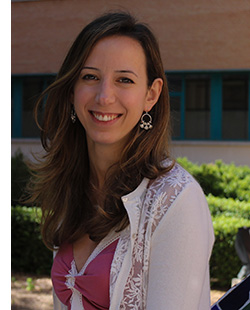
In physics, the uncertainty principle states that we cannot precisely measure the position and momentum of a subatomic particle at the same time. Many students approaching the completion of their Ph.D. experience a unique career-related variation of this principle: The closer they get to graduation, the more difficult it is to make plans for the future.
Although it’s exciting to complete your degree, facing a new professional stage can be stressful. You can minimize this anxiety by planning early and developing the skills you’ll need to reach your long-term goals. Certain abilities are valuable regardless of whether you want to pursue a career in academia or in industry. These “transferable skills” include networking, communication and fund management.
There are many ways to develop your transferable skills. In fact, some doctoral programs even include specialized courses on these proficiencies. Here are some of my suggestions:
Develop your oral communication skills. You can find many resources on the Internet. I especially like “English communication for scientists,” a free tool from Nature Education with tutorials on topics ranging from giving conference presentations to preparing lectures. Many conferences also provide very helpful seminars on scientific communication (for example, Jean-luc Doumont’s video and OPN article on “Creating Effective Slides”).
Become a better writer. Although we have many day-to-day writing obligations for school or work, it is a good idea to build your non-technical writing skills as well. There are a wide variety of outlets where you can practice: write for a blog, local newspaper, magazine or outreach book (like “El laser, la luz de nuestro tiempo”). For example, you can write for Optics & Photonics News (OPN), the membership magazine of The Optical Society; OPFocus, an independent magazine reviewing important recent developments in the fields of optics and photonics; and of course OPN’s Bright Futures career blog!
Create a network. Student-oriented conferences such as the IONS meetings offer a great chance to build a professional network and meet colleagues. Conferences and technical meetings in general will help you to learn about different subject areas and introduce you to potential employers. Many offer professional development events, such as presentations by journal editors or meetings with entrepreneurs, which provide insight into different professions and the qualifications they require.
Learn fund raising and grant management. A good way to practice is to help your supervisor with his or her proposal by writing the paragraphs corresponding to your project description. Another good opportunity to get experience in this realm is through an OSA student chapter, as you will often file activity grants applications and raise funds to support chapter events.
My advice for those of you running up against your “uncertainty principle” is to make it work in your favor—by keeping as many doors open as possible and learning as you go. With so many exciting possibilities to explore, perhaps certainty is overrated.
Rocío Borrego-Varillas (rborrego@uji.es) received her Ph.D. from the University of Salamanca, Spain. She is currently a postdoctoral researcher at the Universitat Jaume I, Spain, and has been recently awarded a Marie Curie Fellowship to conduct her research at the Politecnico di Milano, Italy.
